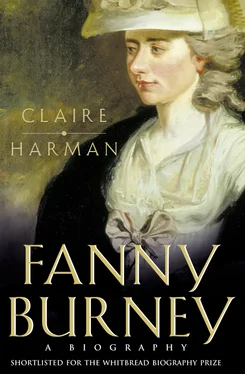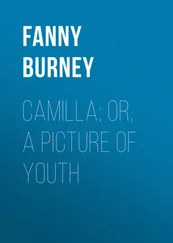To have some account of my thoughts, manners, acquaintance & actions, when the Hour arrives in which time is more nimble than memory, is the reason which induces me to keep a Journal: a Journal in which I must confess my every thought, must open my whole Heart! But a thing of this kind ought to be addressed to somebody – I must imagion myself to be talking – talking to the most intimate of friends – to one in whom I should take delight in confiding, & remorse in concealment: but who must this friend be? – to make choice of one to whom I can but half rely, would be to frustrate entirely the intention of my plan…. To whom, then, must I dedicate my wonderful, surprising & interesting adventures? – to whom dare I reveal my private opinion of my nearest Relations? the secret thoughts of my dearest friends? my own hopes, fears, reflections & dislikes? – Nobody!
To Nobody, then, will I write my Journal! since To Nobody can I be wholly unreserved – to Nobody can I reveal every thought, every wish of my Heart, with the most unlimited confidence, the most unremitting sincerity to the end of my Life! 7
Behind the elaborate joke of this is the admission that the whole enterprise is unsound, that there is, literally, nobody with whom the diarist can be completely unguarded.
On matters of ‘unlimited confidence’ and ‘unremitting sincerity’ Burney was, like all diary-writers, on shaky ground. Matters of fact, on the other hand, she felt to be her forte. Fanny Burney was blessed with a phenomenal memory and could repeat back quantities of conversation on one hearing, as if, as her father joked, ‘you carry Bird Lime in your Brains – for every Thing that lights there, sticks’. 8 This knack seems to have had an affinity with her sister Hetty’s prodigious ability to transcribe or play back pieces of music (Hetty amazed the composer Sacchini in 1773 by playing from memory the overture to his new opera Il Cid , which had not yet been published). 9 When Fanny memorised speech, the sound of the words was pivotal: ‘my memory was not more stored with the very words than my voice with the intonations of all that had passed’, she said when recalling part of the trial of Warren Hastings. 10 On another occasion she wrote of a friend’s speech-mannerisms, ‘I think, if possible, his Language looks more absurd upon Paper even than it sounds in conversation, from the perpetual recurrence of the same words’, which suggests that she was transcribing from memory word for word. This wasn’t the only way Fanny Burney recorded speech – sometimes she remembered the argument and reconstructed the wording more loosely (I have included an interesting example of this process at work in her recollection of Warren Hastings’ trial in the Appendix) – nor was her diary always freshly written, however spontaneous it sounds. She came to rely on ‘writing up’ her journal – sometimes at a distance of weeks or months – using notes she had jotted down on erasable ivory tablets. There was some element of hindsight at work in almost all her autobiographical writing.
Fanny Burney’s phenomenal powers of memory may well have made her overconfident about her own rightness, which she extended from being reliable in matters of fact to being correct in interpretation. Even in her own lifetime, some people thought Fanny Burney too much of a novelist to be taken seriously as a historian or biographer, and when in her later years she published Memoirs of Doctor Burney , the critic John Wilson Croker thought her ‘recollections’ betrayed ‘consummate art – or a confusion of ideas which has had the same effect’. 11 More damningly, several readers who had personal knowledge of people and events mentioned in the Memoirs objected very strongly to Fanny’s version. Her stepbrother Stephen Allen leapt to the defence of his mother, the second Mrs Charles Burney (who, as we shall see, came off extremely badly in the Memoirs ), and Mrs Delany’s ex-servant, Anne Agnew, felt the portrait of her former mistress so faulty that the author ‘must fancy she was writing a novel and therefore could embellish her story in any way she liked’. 12 In the light of these criticisms, the affectionate joke that Samuel Johnson made about Fanny back in the 1780s rings a little hollow: ‘[N]ever mind what she says. Don’t you know she is a writer of romances?’ 13
Ironically, Madame d’Arblay prided herself on her ‘reverence for truth’; 14 indeed she seems to have been obsessed with it. ‘I can use no softer term than Defamation for the least attack upon my veracity’, she wrote defiantly during the row with Stephen Allen following the publication of the Memoirs . Joyce Hemlow, the author of the first scholarly biography of Fanny Burney in 1958, defended her subject’s veracity rather weakly on the grounds that:
While she did not always tell the full truth about some of the family difficulties, sins, and errors, she did not tell un-truths. As a biography, therefore the Memoirs is limited by the point of view and selection of material, but within its limits it is authoritative, and more authoritative than anything else written on Dr Burney, or likely to be written. It is based on knowledge that no other biographer can hope to have. 15
This was surely exactly the response Fanny wanted to provoke: no one could ‘know more’ about her father than she did, and any sins of omission she may have committed by suppression of certain facts were in the cause of filial piety and family privacy, and therefore excusable. Unsurprisingly, biographers of Charles Burney have taken a less charitable view of Fanny’s tampering with the evidence. Roger Lonsdale claims, very plausibly, that the effect is sometimes ‘to destroy the true nature of [Charles] Burney’s personality’, 16 and concludes that Fanny was ‘consciously dishonest’ at times, to the effect that she ‘cannot be trusted’. 17
It seems likely that the experience of going through her father’s papers in the last twenty years of her life made Madame d’Arblay acutely aware of the problem of how to control her own posterity. She was shocked to find how much the self-portrait that emerged of her father differed from her own view of him and decided to ‘set the record straight’. This led to a general overhaul of her own ‘record’ too. Fanny’s account in the Memoirs of her first meeting with Dr Johnson and Mrs Thrale on 20 March 1777, originally described in a letter to her elderly mentor Samuel Crisp, provides one of innumerable examples of how she rewrote biographical evidence to suit her own purposes better. In the Memoirs , the letter she quotes as offering ‘genuine detail’ of the occasion is an elaborate augmentation of the original. It is fascinating not just as an example of hindsight and score-settling (particularly in the material relating to Mrs Thrale) but of Fanny exercising an assumed right to shape her material; you can see in it both a novelist’s anxiety to convey character and a memoirist’s concern not to look foolish in his private and peremptory judgements. This particular letter was a prime candidate for careful polishing up, affording Fanny the opportunity to set in stone her ‘first impressions’ of the great man. Much of what she adds in her later version is decorative. Johnson arrived at the Burneys’ house in St Martin’s Street later than the other guests (Mrs Thrale, Miss Thrale, their cousin Miss Owen and the writer William Seward), disturbing the performance of a duet by Fanny’s sisters Hetty and Susan. Johnson was no music-lover, and was even more short-sighted than Fanny or her father. Instead of sitting and listening to the duet, he drew his chair up to the harpsichord and ‘ poked his Nose over the keys’, as Fanny related in her original letter, expanding her description by several paragraphs in the Memoirs to include an account of her sisters’ discomfort at his behaviour and William Seward’s amusement at it. At other points in the Memoirs version, a few cracks begin to show. Not only does Fanny add a great deal more detail about Johnson’s uncouth appearance – ‘He is, indeed, very ill-favoured’ – but queerly apologises for noticing it at all, apparently addressing Crisp thus:
Читать дальше












